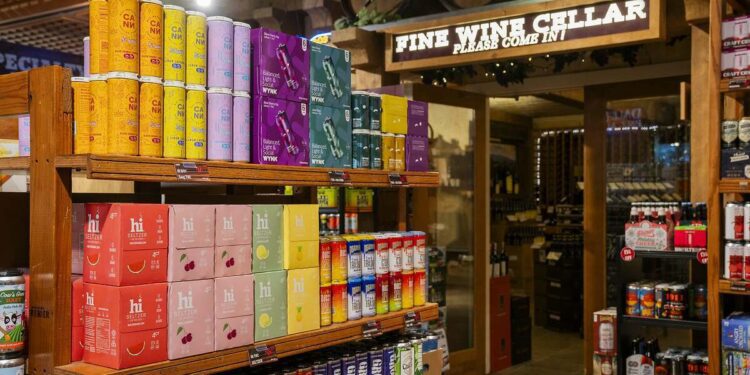Cycling Frog promises to elevate your mind ‘to the clouds’ and Delta Light guarantees a euphoria followed by calmness. They are the trendy non-alcoholic beverages in the USA that, while they don’t make you drunk, contain THC, the main psychoactive ingredient in the cannabis plant that produces certain effects on consumers. A real boost for the sector in the midst of declining alcohol consumption that has sparked jealousy and alerts among other companies based on the commercialization of cannabis-derived products and among regulators.
It is the back door that alcohol distributors in that country have found in the face of falling alcohol sales in recent times. While marijuana products are restricted by the federal government, these beverages are legal as they are made with that hemp derivative, which contains less than 0.3%.
The explanation of why they are allowed is found in the “Matrix glitch” that the sector itself acknowledges having found in the US Agricultural Law approved in 2018. The law allowed hemp to be grown to manufacture anything from clothing to car parts. Beverage manufacturers took advantage of the legal loophole that was facilitated by the wide range of uses of hemp to distill it following a process similar to converting grapes into wine. And thus emerged the psychoactive concentrate that they include in the new beverages.
The company Drink Delta (North Carolina) manufactures up to six beverages of different ‘strengths’ with THC derived from hemp. On their own website, they acknowledge having found “a legal gap in the Matrix,” as highlighted by Bloomberg. The sector’s mission now is to keep that gap open.
Alcoholic beverage distributors now face lawmakers who are studying how to close that open door by taking advantage of legal loopholes, and some of the major publicly traded companies selling strictly regulated marijuana products, who feel that their market share is at stake.
The risks of closing a booming business
Reviewing the Agricultural Law to explicitly establish that states can prohibit products with higher volumes of distilled hemp is what the attorneys general of 20 states and Washington DC are pursuing. Distributors of the declining beer who transitioned to this business anticipate negative effects if this happens, as their accounts are now saved by these beverages; they do not rule out worker layoffs if they are finally prohibited and advocate for regulating the product with age restrictions or new taxes, but keeping it on the shelves.
The sector believes that some legal clarification will be applied to these products but is hopeful that the business will continue due to the growing industry support. Farmers also believe this, the other winning part of this new market niche, and they are preparing for it: according to data from the cannabis data provider New Leaf Data Services, more than 20,000 hectares of hemp will be planted this year solely for consumption, compared to 2,500 hectares last year.
Beyond the ‘trick’ to the law, regulators are concerned that hemp-derived beverages may be mislabeled and expose consumers, especially children, to unknown toxins or unexpected effects.
The ‘jealousy’ of cannabis companies
There is another battle being fought within this new revenue focus. THC products derived from marijuana for recreational use are allowed in 24 states in the country, but are still illegal at the federal level pending reclassification. Publicly traded companies that market hemp-derived products (edible raw flowers or pre-rolled cigarettes, among others) are subject to strict legislation that prevents them, among other things, from making interstate shipments, working with large national banks, accepting credit card payments, or enjoying tax deductions, while hemp companies do not face such restrictions.
Hemp beverage distributors, for the most part, do not need special licenses and can display their colorful cans among their selection of beers, wines, and spirits. State legislators in New York and Connecticut are already working on this. Since last summer, New York has banned beverages with more than 1 milligram of THC per serving, and Connecticut introduced a bill last week to do the same.


